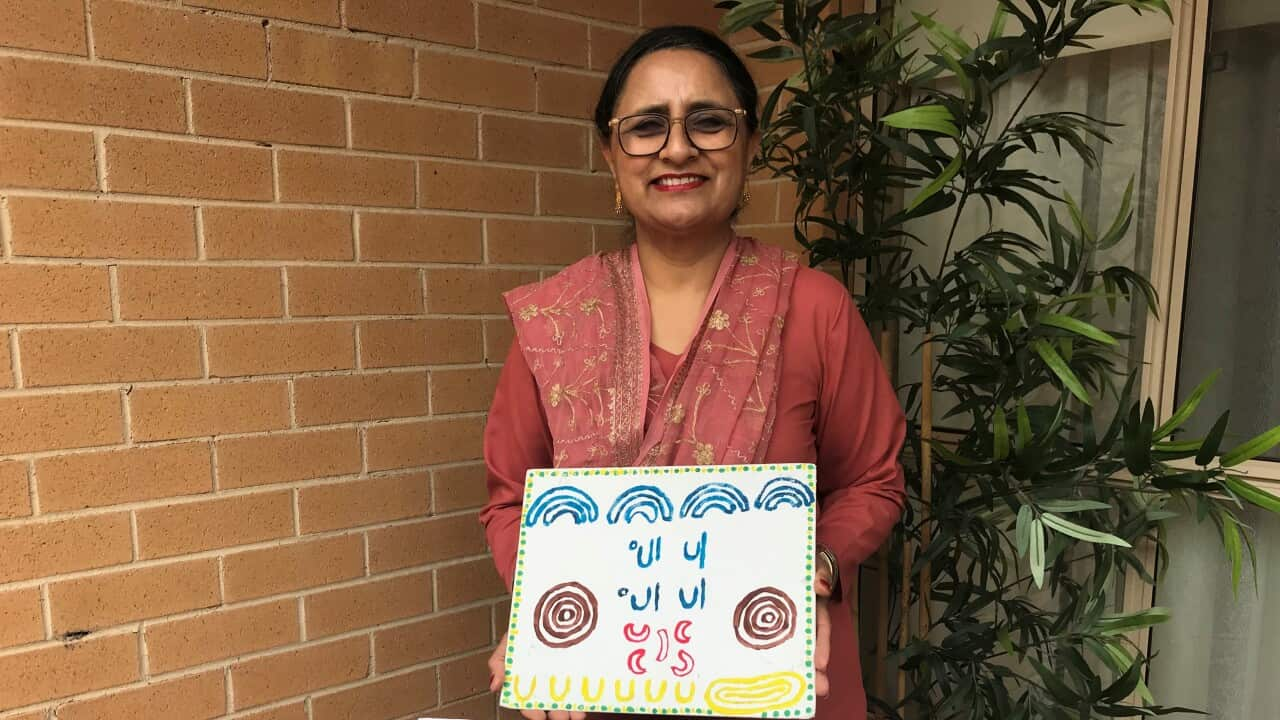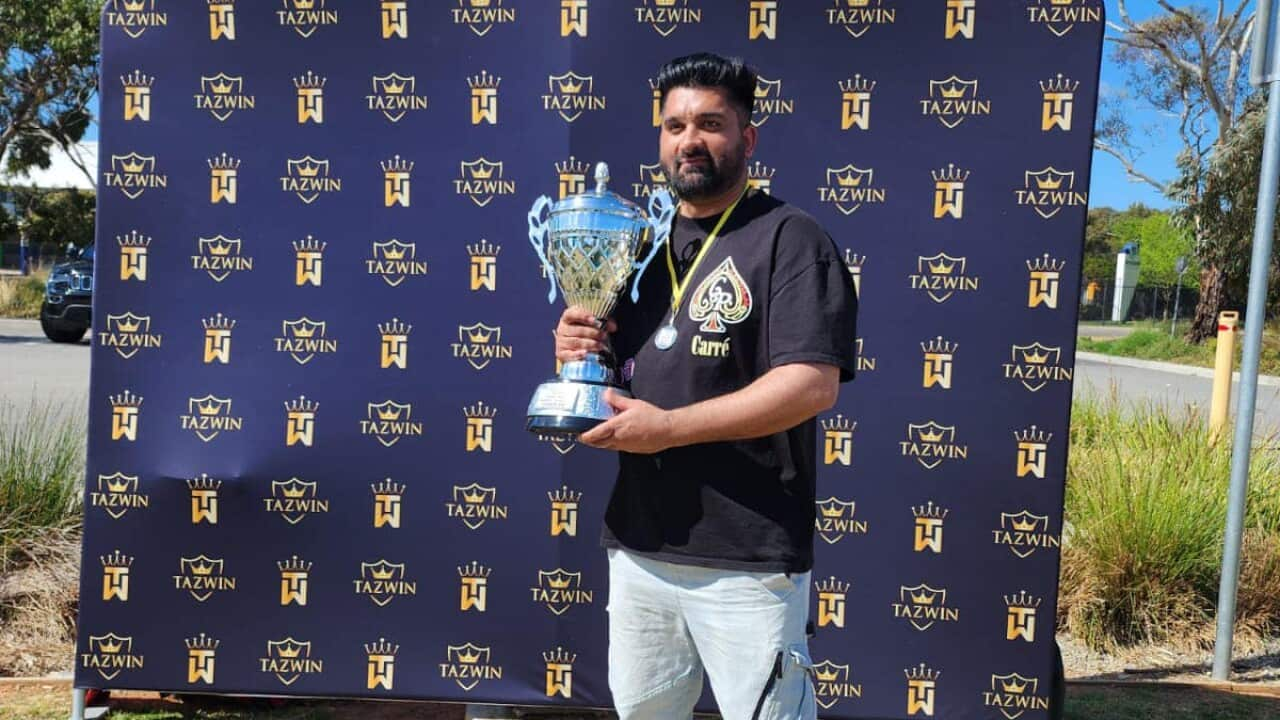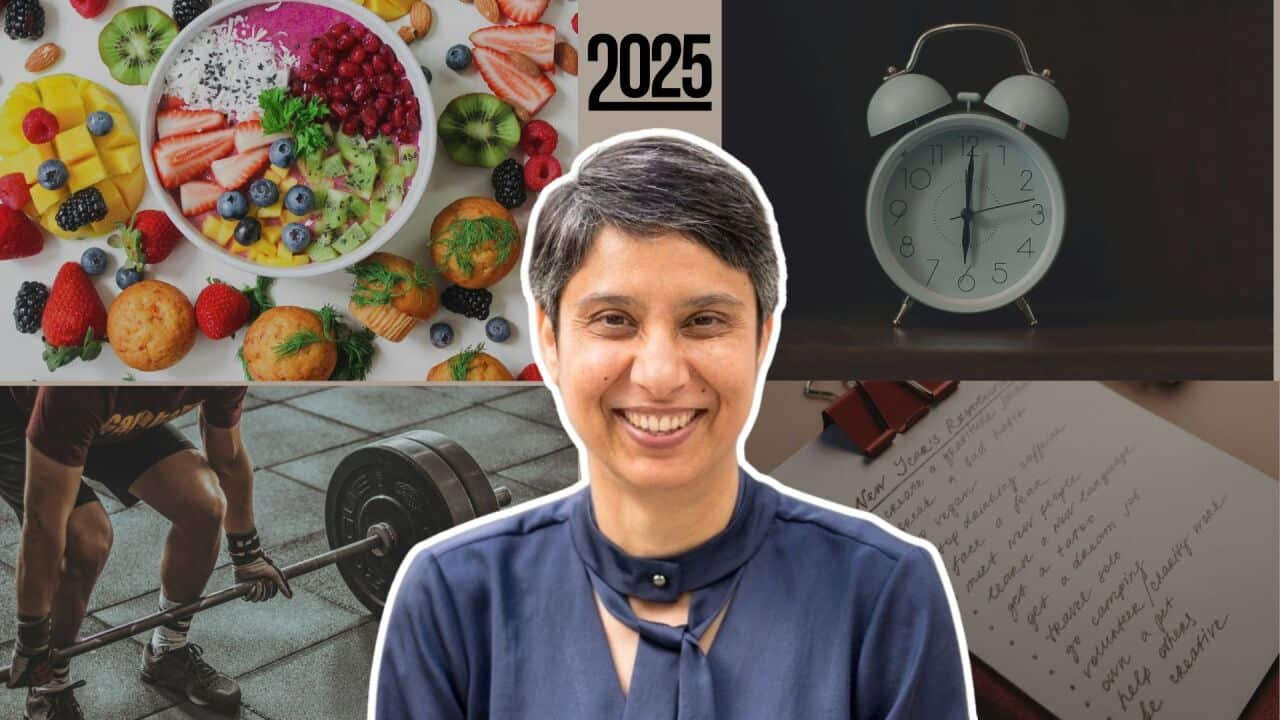The culture and values of Australia's First Nations Peoples are over 65,000 years old and NAIDOC Week from November 8-15 seeks to celebrate it.
“Both Aboriginal and Indian cultures have few similarities like they love their land, are family-oriented, prefer living in clusters and help each other when there is a need,” Gurmeet Kaur told SBS Punjabi, reflecting on her personal experience.
About 18 years ago Ms Kaur took part in a project where school children from different faiths came together to learn and embrace the cultures of other communities, especially Aboriginal and Torres Strait Islander people.
“About 15 to 20 children and the same number of parents from Sikh, Buddhist, Muslim, and Christian faiths were involved in a cross-cultural workshop at Redfern Aboriginal Community Centre,” she said. “Children and parents had cleaned and re-painted the Aboriginal centre under the supervision of Michael Jarrett, Aboriginal Head from Nambucca Heads. It proved out to be a great opportunity to learn about different faiths, especially the Aboriginal cultures”.
“Children and parents had cleaned and re-painted the Aboriginal centre under the supervision of Michael Jarrett, Aboriginal Head from Nambucca Heads. It proved out to be a great opportunity to learn about different faiths, especially the Aboriginal cultures”.

Gurmeet Kaur took her own time off to learn more about the cultures and values of Aboriginal People. Source: Gurmeet Kaur
Keen to know more about the First Nations Peoples, Ms Kaur took time off from work to attend some more workshops as well.
One of them was a “Dreaming” workshop where attendees were briefed about the significance of the symbols used in Aboriginal paintings.
“Since Aboriginal people never had a proper script, therefore all their emotions and stories were described through motifs and paintings. We were told about the significance of circles, dots, and colours used in the paintings of Aboriginal people”, shared Ms Kaur.
“After the briefing, we were given a task to describe one of our personal story - or as they call it, a dream - into a painting”.
Ms Kaur found that the cultural values and customs of Aboriginal people were quite similar to Punjabis like her hailing from India.
“I made a painting describing my joint family routine where I live with my parents-in-law, my husband and two children by drawing appropriate circles at specific positions, much like an Aboriginal person would paint”.
All the participants in that workshop had described their stories or dreams in their respective paintings.
“We also wrote the story of our feelings described in our paintings”.
In order to bridge the gap between migrants and the Aboriginal communities, Ms Kaur advises that “we all must embrace from the heart the rich culture and customs of First Nations Peoples.
"When we start the workshops or meetings, we should give due respect to the people on whose land we are living now. We should try to learn more from our Aboriginal colleagues and neighbours.
“We work for the rights of our women in society but do we ever care to know what rights Aboriginal women have in society?”
To hear the full audio, please click on the audio player above.
People in Australia must stay at least 1.5 meters away from others.
Testing for coronavirus is now widely available across Australia. If you are experiencing cold or flu symptoms, arrange a test by calling your doctor or contact the Coronavirus Health Information Hotline on 1800 020 080.
The federal government's coronavirus tracing app COVIDSafe is available for download from your phone's app store.
The federal government's coronavirus tracing app COVIDSafe is available for download from your phone's app store.
SBS is committed to informing Australia’s diverse communities about the latest COVID-19 developments.









